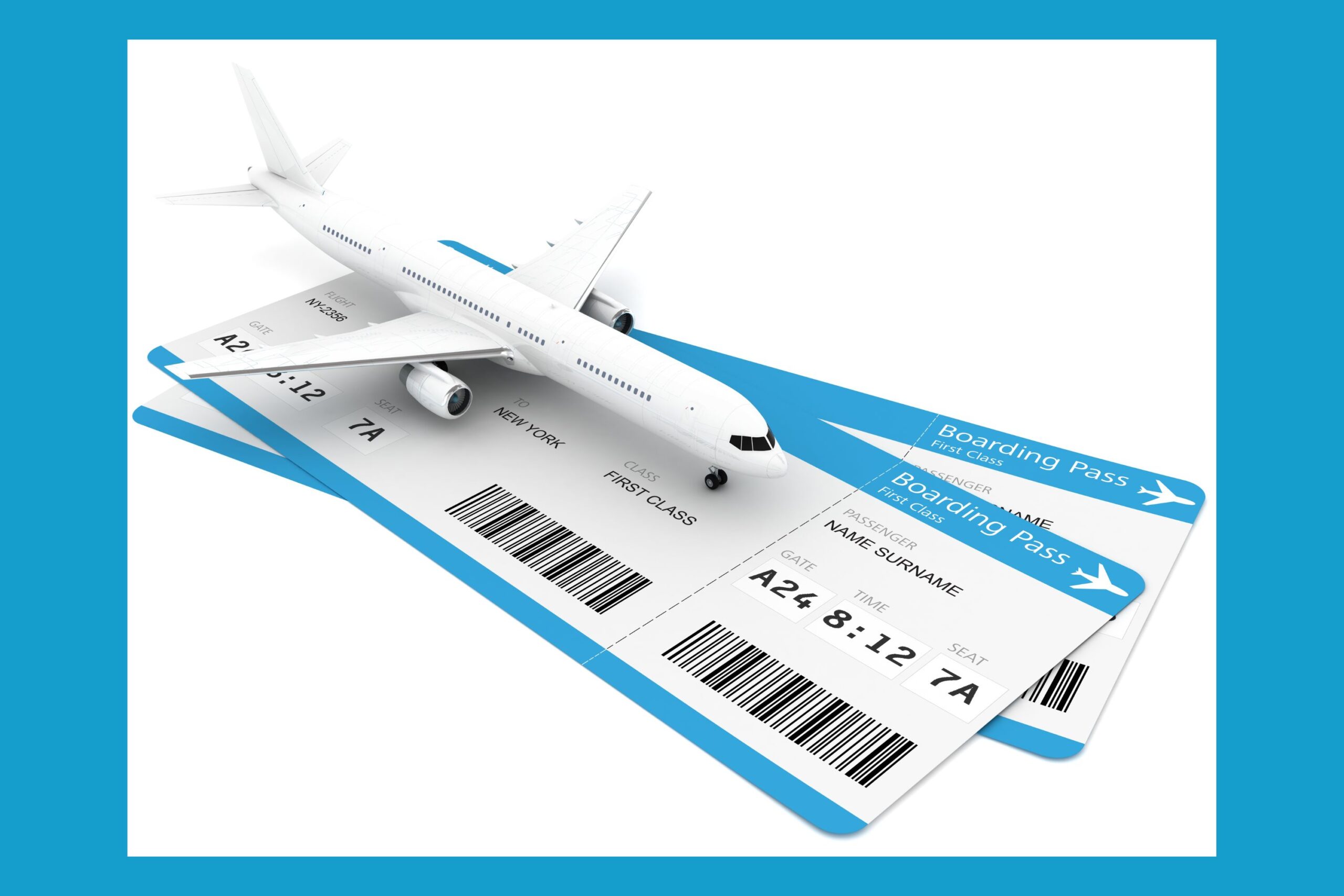Finding the best place to book flight tickets can significantly impact your travel planning experience. With numerous options available, from online travel agencies to airline websites, choosing the right platform can save you time and money.
Let’s explore the most reliable and cost-effective methods for booking flight tickets, providing useful insights to help you make a decision.
Book via Online Travel Agencies (OTAs)
Online travel agencies (OTAs) like Expedia, Kayak, and Skyscanner have transformed how travelers plan and book their trips, thanks to their intuitive interfaces and powerful search tools. These platforms streamline the booking process, allowing users to search and compare prices across numerous airlines, routes, and travel dates in seconds, presenting travelers with various options tailored to various budgets, destinations, and preferences.
One significant advantage of OTAs is their bundling options. Travelers can combine flights with hotel stays, car rentals, and even activities, often at a lower overall cost than booking each component separately. These packages also provide added convenience, allowing travelers to manage multiple parts of their journey from one platform.
OTAs frequently feature exclusive promotions, seasonal discounts, and special offers, making it even easier to secure deals on travel arrangements. With discount codes, loyalty programs, and flexible payment options, they provide opportunities for additional savings, helping travelers maximize their budget while accessing a wider selection of options. This combination of affordability, convenience, and choice has positioned OTAs as go-to resources for travel planning across the globe.
Reserve Flights via Airline Websites
Booking directly through airline websites offers several unique advantages, making it a valuable option for travelers seeking convenience, savings, and personalized service. Airlines sometimes present exclusive deals and lower prices on their own websites that third-party sites cannot access, allowing travelers to benefit from special offers directly from the source. These offers can include discounts, early access to sales, or bundled perks like free seat selection or priority boarding.
Another significant benefit of booking directly with the airline is the access to the most current and accurate information about your flight. When changes occur, such as delays, cancellations, or gate changes, airlines communicate these updates directly to customers. This ensures a smoother experience, as you receive notifications promptly, allowing you to make any necessary adjustments quickly.
Direct bookings also allow travelers to make the most of airline loyalty programs, where frequent flyers accumulate points or miles with each trip. Booking directly ensures that you’re fully eligible for these rewards, which can be redeemed for future flights, seat upgrades, and other travel benefits. Additionally, many airlines offer special perks or elite status tiers for loyal customers, providing priority boarding, free checked bags, and access to lounges, which can make the journey more comfortable.
Also, booking directly through the airline often comes with personalized customer service tailored to your specific needs. If issues arise, dealing directly with the airline can simplify the process, as they have a record of your booking and can assist without involving a third-party intermediary. This level of support can be invaluable, particularly during peak travel seasons or in case of unforeseen travel disruptions.
Meta-Search Engines for Flight Booking
Meta-search engines like Google Flights and Momondo have revolutionized flight booking by gathering flight information from multiple airlines, OTAs, and other booking sites, presenting it all in a straightforward, user-friendly format. These platforms are ideal for travelers looking to gain a broad view of available flight options and identify the most competitive deals across a wide range of sources.
One of the standout features of Google Flights is its price-tracking tool, which enables users to monitor fare changes and receive email alerts when prices for specific routes drop. This is particularly beneficial for travelers with flexible schedules, allowing them to book flights at the most favorable times, potentially saving a significant amount on airfare. Additionally, Google Flights’ “Explore” tool allows users to view various destinations and their corresponding fares, providing inspiration for those considering multiple travel options.
Meta-search engines also offer comprehensive details on each flight option, including travel time, layovers, and additional amenities that can affect the overall travel experience. For instance, they can help travelers evaluate the trade-offs between cheaper flights with longer layovers and more convenient, albeit pricier, direct flights. Many platforms allow users to filter results by criteria like baggage policies, onboard services, and airline alliances, enabling a more tailored search experience.
Furthermore, meta-search engines often highlight flexible booking policies and COVID-19 guidelines, which are crucial for navigating current travel conditions. This transparency allows travelers to make informed decisions, weighing factors like flexibility, comfort, and convenience alongside price – ultimately helping them find flights that best suit their preferences and needs.
Reserve Flight Tickets with Booking Apps
In the era of smartphones, travel booking apps like Hopper and Skiplagged have risen in popularity, offering travelers a range of convenient and innovative features tailored for modern, on-the-go users. These apps are designed to simplify the booking process while uncovering deals and insights that traditional platforms might overlook.
Hopper stands out for its sophisticated price-prediction technology, which uses algorithms to forecast future flight prices with remarkable accuracy. By analyzing historical data and trends, Hopper provides users with guidance on the best times to book, even notifying them when prices are expected to drop or rise. This feature can be especially valuable for travelers with flexible schedules who want to secure the best possible fare.
Skiplagged, on the other hand, has carved a niche in the travel industry by helping users find “hidden-city” fares – flights where passengers disembark at a layover location rather than the ticketed final destination. By skipping the last leg of a journey, travelers can sometimes save significantly, especially on routes where layover cities are common. However, this tactic should be used with caution, as it typically works only for one-way tickets and may violate certain airlines’ policies.
These apps offer user-friendly interfaces with additional perks that enhance the booking experience. Hopper, for example, lets users set price alerts, monitor trip cost fluctuations, and even lock in a fare for a small fee, providing peace of mind for those who want more time to finalize their plans. Both apps are optimized for mobile, meaning users can search, book, and manage their trips directly from their smartphones with minimal hassle.
Beyond cost savings, Hopper and Skiplagged provide transparency and flexibility that cater to today’s travel needs. They enable travelers to explore booking options, compare prices, and decide qickly and efficiently – ideal for users seeking both convenience and affordability in a fast-paced, mobile-first world.
Travel Agents Book Flights
Although digital platforms are now the primary choice for many travelers, traditional travel agents continue to play a valuable role, particularly for those with complex travel plans or specialized requirements. Travel agents offer a level of personalized service and industry expertise that online booking platforms can’t always match, making them a crucial resource for specific travel needs.
One of the standout advantages of using a travel agent is their ability to access exclusive deals, upgrades, and amenities not readily available on public booking sites. Leveraging their extensive industry connections, agents often secure discounted rates, complimentary room upgrades, and additional perks, such as priority check-ins or added amenities at hotels. For travelers seeking a premium experience – such as honeymooners or business professionals – these extras enhance the overall journey without added effort.
In addition to securing exclusive perks, travel agents handle essential logistical aspects of travel, offering peace of mind for clients. From visa and passport requirements to travel insurance options and destination-specific advice, agents cover critical details that are often challenging to navigate independently. This is especially helpful for multi-destination trips or journeys requiring special considerations, such as mobility accommodations or dietary needs.
Another significant benefit of working with a travel agent is the support they offer when things don’t go as planned. If a flight is delayed, a hotel is overbooked, or last-minute adjustments are needed, agents provide hands-on assistance to resolve issues swiftly. Unlike digital platforms, where customer support is often limited to chat or call centers, travel agents offer direct, personalized help. This level of service can be invaluable during high-demand travel seasons or in the case of unexpected disruptions.
For travelers who prioritize expertise, convenience, and a seamless experience, consulting a travel agent is often well worth the investment. Their insider knowledge, access to exclusive benefits, and commitment to managing the finer details can transform a good trip into an exceptional one, ensuring both comfort and confidence from departure to return.
Your Best Places to Book Flight Tickets
In today’s travel landscape, there’s no one-size-fits-all approach when it comes to booking a trip. Digital platforms, mobile apps, meta-search engines, and traditional travel agents each offer unique benefits, catering to a variety of travel needs and preferences. For those looking to quickly compare fares and secure deals, online travel agencies and meta-search engines provide a wide range of options and convenience. Apps like Hopper and Skiplagged add a layer of innovation, with tools that predict prices or uncover hidden fares for savvy travelers.
On the other hand, traditional travel agents remain an invaluable resource, particularly for complex itineraries or specialized trips. Their ability to provide personalized service, handle logistics, and offer exclusive perks makes them a worthwhile option for travelers seeking a hassle-free, premium experience. Agents are also there to provide real-time support when things don’t go as planned, ensuring peace of mind through every stage of the journey.
Whether booking through digital tools or with the assistance of a seasoned travel agent, travelers today have more choices than ever. Each option – whether it’s a quick comparison on a meta-search engine, a deal on a booking app, or a customized itinerary from a travel agent – offers distinct advantages. Choosing the method that best aligns with their travel style and needs, travelers can make the most of their journeys, enjoying seamless, well-planned, and fulfilling experiences.
FAQs
How far in advance should I book my flight tickets for the best deals?
The best time to book flight tickets varies depending on the destination and time of year. Generally, booking domestic flights one to three months in advance and international flights three to six months in advance can yield the best deals. However, keeping an eye on fare trends and setting up price alerts can help you identify the optimal booking window for your specific travel plans.
Are there any specific days or times when flight tickets are cheaper?
Flight ticket prices can fluctuate based on the day of the week and time of day. Research suggests that flights departing on Tuesdays and Wednesdays are often cheaper than those on weekends. Additionally, booking flights during early morning or late-night hours can sometimes result in lower fares. Utilizing fare comparison tools can help you identify the best times to book and travel.
How do fare comparison tools help in booking flight tickets?
Fare comparison tools aggregate flight prices from multiple airlines and booking platforms, allowing you to compare options side by side. These tools provide insights into price trends, route options, and potential savings. By using fare comparison tools, you can quickly identify the best deals and make informed booking decisions.




